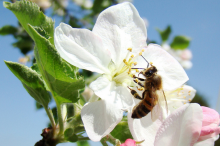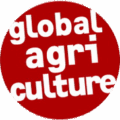
A growing number of pollinator species worldwide are facing extinction, threatening global crop production and millions of livelihoods, a UN body on biodiversity warned on Friday. According to a two-year study conducted by the Intergovernmental Science-Policy Platform on Biodiversity and Ecosystem Services (IPBES), an estimated 16% of vertebrate pollinators are threatened with global extinction – increasing to 30% for island species. In addition, regional and national assessments indicate high levels of threat, particularly for bees and butterflies, with often more than 40% of invertebrate species threatened locally. “Wild pollinators in certain regions, especially bees and butterflies, are being threatened by a variety of factors,” said IPBES Vice-Chair, Sir Robert Watson. “The decline in their populations is primarily due to changes in land use, intensive agricultural practices and pesticide use, alien invasive species, pathogens and climate change.” The authors warns that the ongoing decline in the number of pollinating insects and animals could threaten global crop production. More than three-quarters of the world’s food crops rely at least partly on pollination by insects and other animals. According to the assessment, animal pollination is directly responsible for between 5-8% of global agricultural production by volume, an industry worth up to US$577 billion annually. “Without pollinators, many of us would no longer be able to enjoy coffee, chocolate and apples, among many other foods that are part of our daily lives,” said co-chair Simon Potts. Other crops that heavily depend on pollinators include mangoes and almonds. There are roughly 20,000 species of wild bees alone but butterflies, moths, wasps, beetles, birds or bats also contribute to pollination. Many of the crops that rely on pollination are an important source of income in developing countries. But according to the IPBES, there are a number of steps can be taken to reduce the risks to pollinators and the use of indigenous and local knowledge is important in this respect. These steps include the promotion of sustainable agriculture, which helps to diversify the agricultural landscape and makes use of ecological processes as part of food production. An important measure is decreasing the exposure of pollinators to pesticides by reducing their usage and seeking alternative forms of pest control. The assessment also recommends farmers to adopt ecologically friendly farming techniques, such as planting strips of wild flowers. Since pests and diseases pose a special threat to managed bees, bee keepers can reduce this risk through better disease detection and management, the authors found. The IPBES was established in April 2012 as an independent intergovernmental body for assessing the state of the planet’s biodiversity, its ecosystems and the essential services they provide to society. (ab)
